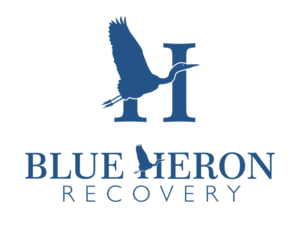Did you know that up to 40 million people needed rehab treatment for their substance abuse problems in 2020, yet just four million people received it? The number of people entering rehab facilities for drug addiction is too low.
In the meantime, up to 109,183 people died in the United States in June 2023 from drug overdoses, reports the CDC.
Texas drug rehab can help you shape your life before you become another harrowing statistic, but the question of entering inpatient or outpatient treatment is a difficult one to answer. Learn about the merits of outpatient rehab treatment for drug addiction and compare it to inpatient treatment to make your choice.
Types of Outpatient Treatments
Outpatient treatment refers to drug addiction treatment at a Texas drug rehab center without living in the facility. An outpatient journey to sobriety looks different for everyone. Here are the types of treatments you can explore.
Support Groups
A support group is not the only form of outpatient treatment you will receive but will be included in one of the two standard outpatient programs, either intensive outpatient or partial hospitalization.
Since drug addiction can be such an isolating experience, connecting with others via a support group can be a revolutionary experience for most patients. You can discover that you’re far from alone in how you’ve handled your addiction, whether you engage in shameful habits like lying to friends and family or stealing money.
Support groups help you reach new milestones in your sobriety together, creating a safe space to vent, express fear and hope, and find a path forward.
Intensive Outpatient Program
An intensive outpatient program or IOP includes a mix of individual and group therapy. You will also partake in a variety of activities. The duration of IOPs is usually short due to their high-paced nature but will require your active participation multiple days a week every week.
Partial Hospitalization Program
You may also consider a partial hospitalization program or PHP. More intensive than IOPs, PHPs provide all-day Texas drug rehab treatment. However, you do not stay overnight at the treatment center.
PHP programs last between five and eight hours per day. Unlike an IOP, where you must only commit several days a week to treatment, PHPs require at least five days and up to seven days per week of participation.
During your time in a partial hospitalization program, you will work on building new skills and talking through your issues with individual and group counseling and psychotherapy.
Outpatient vs. Inpatient Treatment – The Pros and Cons
Considering your options, is outpatient Texas drug rehab the right call for you? Review the pros and cons of this treatment modality and inpatient treatment to help you decide.
The Pros and Cons of Outpatient Drug Treatment
The Advantages
Outpatient rehab for substance abuse addictions has many clear benefits. The service is usually less expensive than inpatient rehab because the programs are shorter, and you’re not living in the facility while undergoing treatment.
Since you get to go home every night, you can still see and take care of your family. Depending on the rehab schedule, You can still work a full- or part-time job, allowing you to maintain a semblance of your life.
After all, having to quit your job to go to rehab makes affording the service difficult. It’s also harder to start your new sober life without working.
The Disadvantages
However, outpatient Texas drug rehab does have some downsides to be aware of. For example, since you don’t get 24/7 support and supervision like you do in an inpatient treatment program, you could be more susceptible to relapsing.
Another contributing factor to a potential relapse is having access to all your old habits and potentially harmful influences. Being around drugs while still undergoing treatment might be too much to withstand, and you will end up succumbing.
The Pros and Cons of Inpatient Drug Treatment
The Advantages
Inpatient drug rehab, where you live in a facility, offers some degree of freedom, as you can usually select the terms of your stay. For example, many Texas drug rehab facilities offer shorter- and longer-term programs.
The 24/7 care you’ll receive may put you in a better position to take those first successful steps into sobriety, as you will have fewer temptations.
The Disadvantages
However, you can’t brush aside the downsides of inpatient Texas drug rehab treatment. It’s more expensive, as established. Attending full-time treatment separates you from your loved ones. A break can sometimes be good, especially if they’re enabling your addiction, but makes treatment more challenging.
Additionally, attending inpatient rehab may cause you to have to quit your job, especially if you’re enrolling in a longer-term program over several months. As mentioned, this makes it harder to reset your life afterward.
Inpatient treatment can also delay the inevitable, so to speak. You will be coached on how to reintegrate into your life, including how to separate from enabling parties and avoid places that may influence you to relapse, but the time away can make these places and people more tempting.
How to Choose Between Inpatient and Outpatient Rehab
Ask these questions as you carefully contemplate your rehab options:
- How much can you afford for rehab?
- Will your health insurance cover rehab costs, or will you have to pay out of pocket?
- How much time can you take away from work, if any?
- Can someone else take care of an older parent, child, or pet while you’re away?
- How long can you spend away at a treatment program?
Drug rehab should complement your life so you can get the help you need and plan for all that comes after.
Receive Outpatient Treatment at Blue Heron Recovery
Seek the best Texas drug rehab at Blue Heron Recovery. This San Antonio facility is led by qualified, trusted medical staff and compassionate, knowledgeable counselors. Blue Heron Recovery specializes in outpatient care, including PHP and IOP, and has separate rehab programs for men and women. You can also rely on our experts at Blue Heron Recovery for therapy services, from trauma therapy to medically-assisted treatment, dialectical behavior therapy, and cognitive behavioral therapy. Explore your treatment options today or enroll in this leading outpatient Texas drug rehab program by calling 888-403-6608 or using the online contact form.






